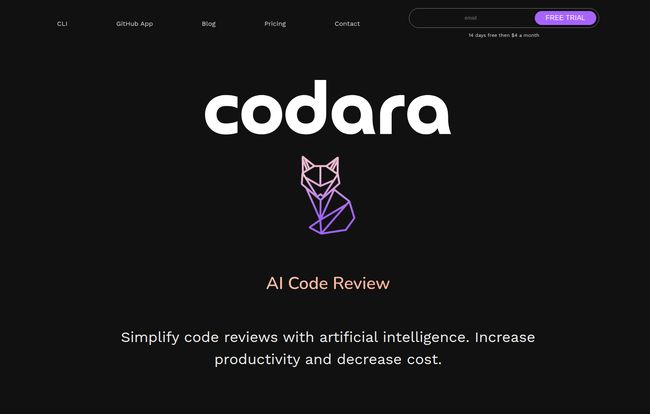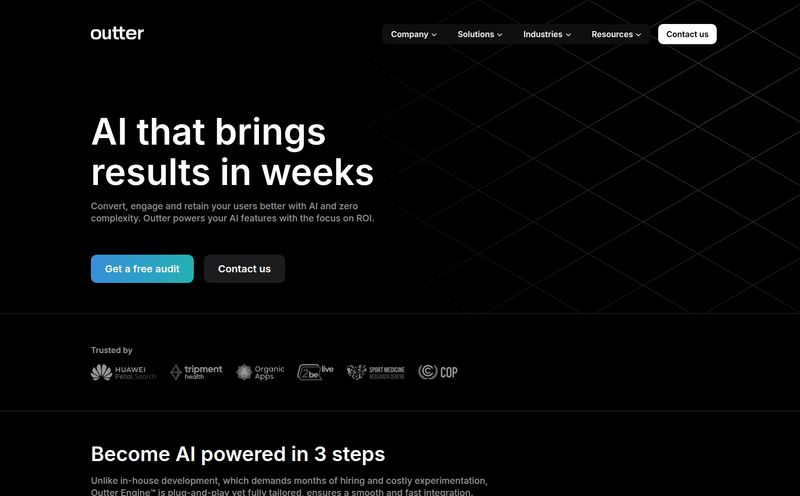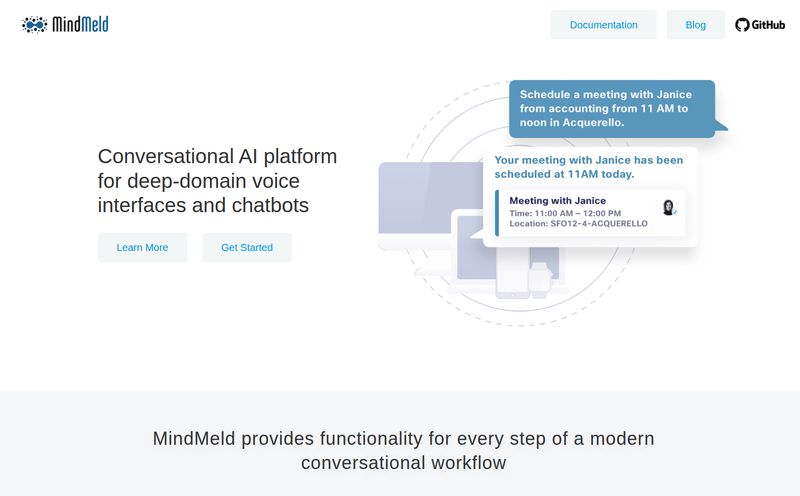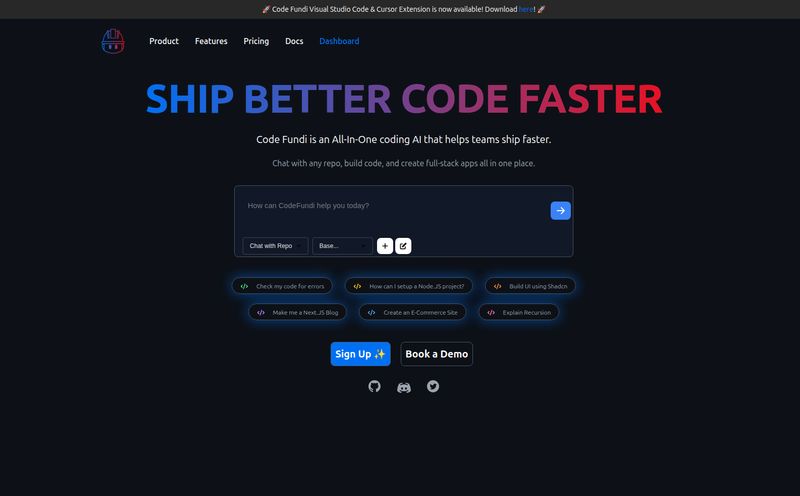Code reviews. We all say we love them. We talk about collaboration, code quality, and mentorship. But deep down, there's that little knot in your stomach when you push a new pull request. It's the waiting game. Waiting for a senior dev to have a spare 30 minutes. Waiting for the inevitable “Can you rebase this?” or the soul-crushing stream of nitpicky comments about formatting that the linter should have caught anyway.
I’ve been in the development and SEO game for years, and I've seen the same pattern everywhere, from tiny startups to massive enterprises. The single biggest bottleneck to getting things done isn't writing the code; it's getting it through the human gatekeepers. We’re all busy, we’re all overloaded, and PR queues just keep getting longer.
So, when I first heard about Codara, another AI tool in the ever-growing sea of AI tools, I was skeptical. An “AI Code Review” tool? Sure, Jan. But the claims were bold: 10x review speed, 80% cost reduction. My inner cynic was screaming, but my inner, overworked developer was listening. I decided to give it a spin. And I'm here to tell you, it's... actually pretty good.
So What is Codara, Exactly?
At its heart, Codara is an AI-powered assistant that lives in your command line. Think of it less as a replacement for your senior dev and more like a tireless, hyper-intelligent junior dev who has memorized every best practice document ever written. Its main job is to automate the tedious parts of code review, diagnose potential problems, and even suggest fixes before a human ever has to look at it.
It’s not trying to reinvent your workflow. It plugs right into your existing process. You write your code, and instead of immediately pushing it for human review, you run a simple command like codara review. The AI scans your changes, chews on them for a moment, and then spits back a report. It’s like having a pre-flight check for your code, ensuring you’re not about to cause a five-alarm fire in production.

Visit Codara
The Features That Actually Move the Needle
Look, any tool can have a shiny feature list. But as someone who's seen a million 'productivity' tools come and go, I only care about what works in the real world. Here’s what stood out to me about Codara.
AI-Powered Review on Autopilot
This is the main event. The AI review process is surprisingly sharp. It goes way beyond what a standard linter or static analysis tool does. It's looking for logical flaws, potential race conditions, and inefficient patterns that a simple syntax checker would totally miss. I’ve always said that the best code review catches the things the author didn’t even think to question. Codara does a surprisingly good job of that. It's not just checking for mistakes; it's assessing the quality and making your code more robust.
More Than Just a Linter: The Diagnostic Feature
This is where things get really interesting. Codara has a `diagnose` command. If you have a bug or a failing build that you just can't figure out, you can sic the AI on it. It analyzes the context and provides not just a guess, but a reasoned explanation of what might be wrong and how to fix it. It's like a Socratic method for debugging. It won't always be perfect—no AI is—but it can knock you out of that frustrating loop of just staring at the same broken code for an hour. It's an incredible tool for breaking through mental blocks.
Working Where You Work: Seamless Integration
I cannot stress this enough: I despise tools that make me change my entire workflow. The beauty of Codara is that it’s a Command-Line Interface (CLI) tool. It doesn't force you into a new, clunky web UI. You stay in your terminal, in your happy place. One of the coolest parts is its ability to review unstaged code. This is a subtle but massive win. You can get feedback on your work as you're doing it, line by line, without having to commit everything first. It turns code review from a formal, scary event into a casual, iterative conversation with an AI partner.
My Honest Take: The Good, The Bad, and The AI
Alright, let's get down to brass tacks. No tool is a silver bullet. After using Codara for a bit, here's my unfiltered breakdown.
The Stuff I Really Liked
The speed is the most obvious win. Running a Codara review takes seconds. What used to be a half-day wait is now instant feedback. This completely changes the development cycle, encouraging smaller, more frequent commits. I also loved that the feedback is private. You can fix your own dumb mistakes before anyone else sees them. It's a huge ego-saver. And quiet frankly, it made me a better coder. It pointed out some of my lazy habits and offered cleaner alternatives, acting as a constant, gentle mentor.
Where It Could Be Better
Of course, it’s not perfect. First, the AI is still an AI. Sometimes its suggestions are a bit off the mark or miss the broader context of the application. You still need a human brain to make the final call. This tool is a co-pilot, not the pilot. Second, it's a subscription service after the 14-day trial. While the price is extremely reasonable, I know some devs have an allergic reaction to any recurring cost. And finally, the setup, while simple for anyone comfortable with a terminal, might be a small hurdle for more junior developers or those in stricter corporate environments.
Let's Talk Money: Is Codara's Pricing Worth It?
Okay, the million-dollar question. Or in this case, the four-dollar question. The pricing model is refreshingly simple, which I appreciate.
There are basically two tiers:
- Basic Plan: After a 14-day free trial, this plan costs $4 per month. For that, you get unlimited reviews, the diagnostic feature, the ability to review unstaged code, and importantly, your reviews are all saved locally for privacy. For the price of a fancy coffee, you get a tool that can save you hours of frustration each month. To me, this is an absolute no-brainer for individual developers, freelancers, and small teams.
- Enterprise Plan: This one is a "Contact Us" deal. It includes everything from the basic plan plus a dedicated AI instance, the option for private and local AI models, and premium support. This is clearly aimed at larger organizations with stringent security and compliance needs.
The value proposition of the Basic plan is just fantastic. If it saves you even one hour of work a month, it has more than paid for itself. The free trial is fully-featured, so you can really kick the tires before committing.
So, Who is This Really For?
In my opinion, Codara hits the sweet spot for a few key groups.
First, small to mid-sized development teams. These are the teams often crushed under the weight of their own velocity, where a senior dev is a bottleneck for five other developers. Codara can clear out 80% of the noise in a PR, letting the human reviewers focus on high-level architecture and logic, not syntax and simple bugs.
Second, solo developers and freelancers. When you're working alone, you have no one to check your work. You are your own safety net. A tool like this acts as an invaluable second set of eyes, catching silly mistakes before they make it to a client.
Finally, I think it's a great learning tool for junior developers. The feedback is instant and non-judgmental, which is a much healthier way to learn than being publicly called out in a pull request.
Frequently Asked Questions
How does Codara handle my code's privacy?
This is a big one, and they seem to get it right. According to their site, on the Basic plan, the "reviews are saved locally." This implies your code isn't being stored long-term on their servers to train some global model, which is a huge relief. The Enterprise plan goes even further with private and local AI models for maximum security.
Is Codara difficult to install and set up?
If you're comfortable with npm or your language's package manager and using a terminal, it's a breeze. The instructions on their site are straightforward: install the package, log in, and you're ready to run commands. It took me less than five minutes.
Can Codara completely replace human code reviewers?
Absolutely not. And it shouldn't. Think of it as an intelligent assistant. It handles the first pass, clearing out all the low-hanging fruit and common errors. This frees up your human reviewers to focus on what they do best: understanding business logic, assessing architectural decisions, and providing high-level mentorship. It's about augmentation, not replacement.
What programming languages does Codara support?
The website doesn't have an exhaustive list right on the front page, which is a small oversight. However, given its nature as a CLI tool and the examples shown, it's safe to assume it supports major languages like JavaScript/TypeScript, Python, and others where a build/run process can be executed from the command line. Your best bet is to check their official documentation or just try it on your project during the free trial.
Is the 14-day free trial limited in any way?
It appears to be a full-featured trial of the Basic plan. You get access to all the core functionalities, which is the right way to do a trial. It gives you a genuine chance to see if the tool fits your workflow before you have to pay anything.
The Final Verdict: A Gimmick or a Game-Changer?
After my initial skepticism, I’m a convert. Codara isn't just another AI gimmick. It’s a genuinely useful tool that solves a real, painful problem in the software development lifecycle. It’s not going to take your job, but it will make your job easier, faster, and a little less stressful.
By automating the most tedious and time-consuming parts of code review, it lets developers get back to what they love doing: building cool stuff. For a few bucks a month, it's an investment in speed, quality, and sanity. In the current race to ship features faster and faster, a tool like Codara feels less like a luxury and more like a necessity. I'm keeping it in my toolbox, and I think you should probably give it a try too.



